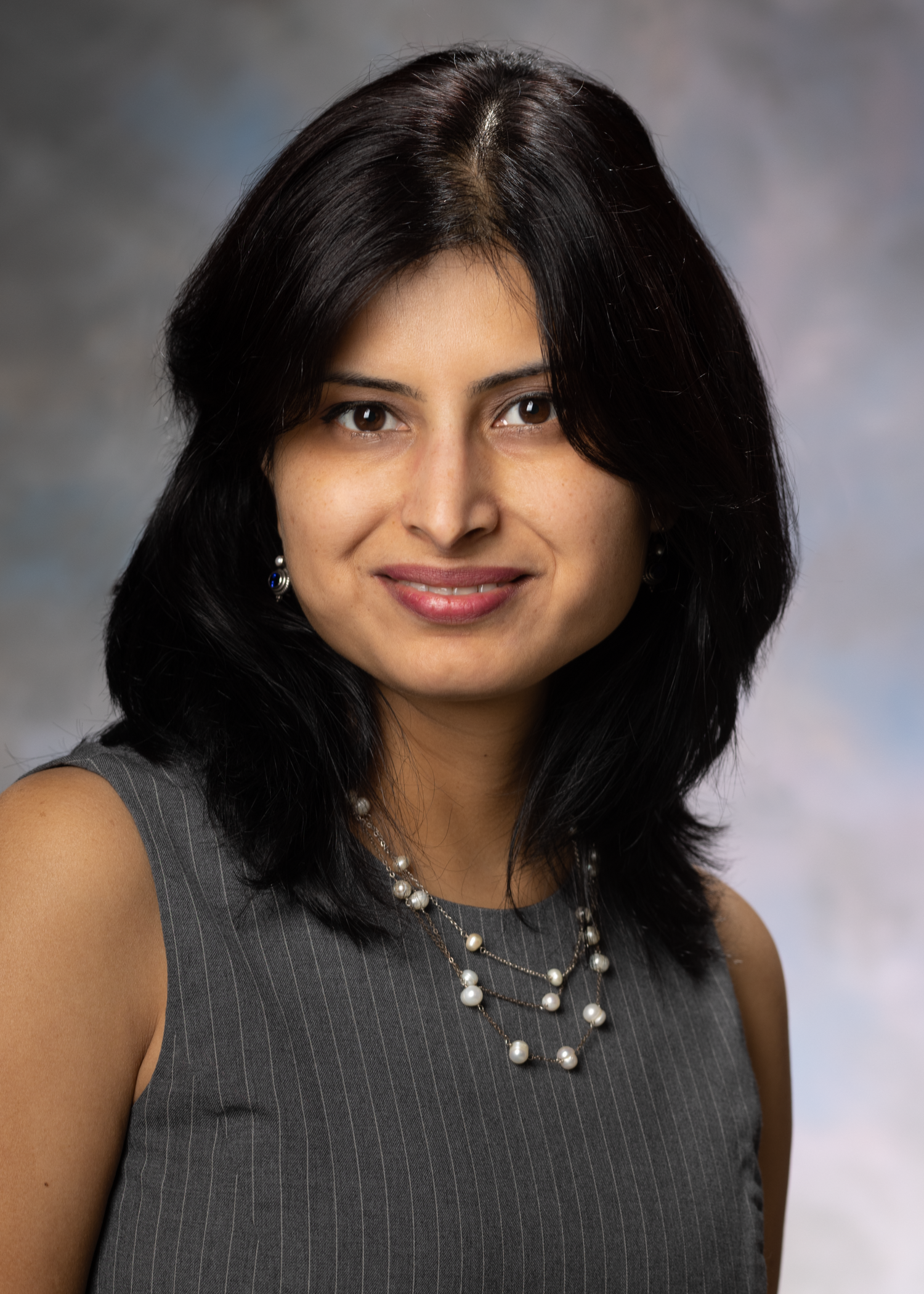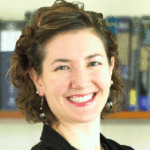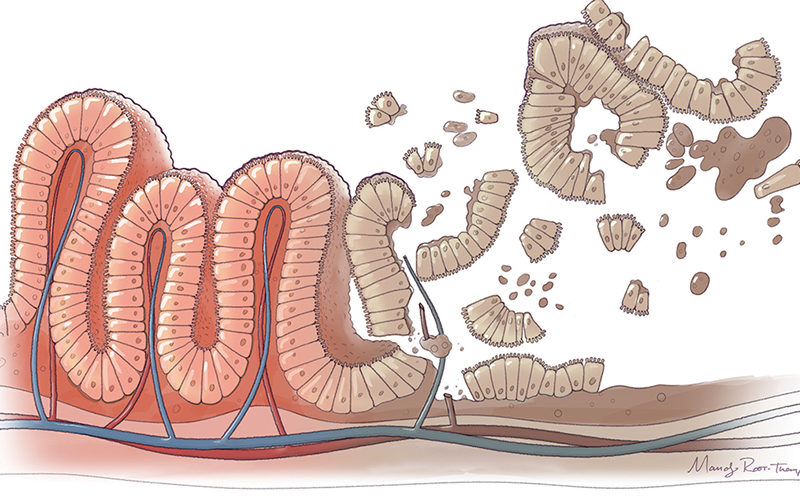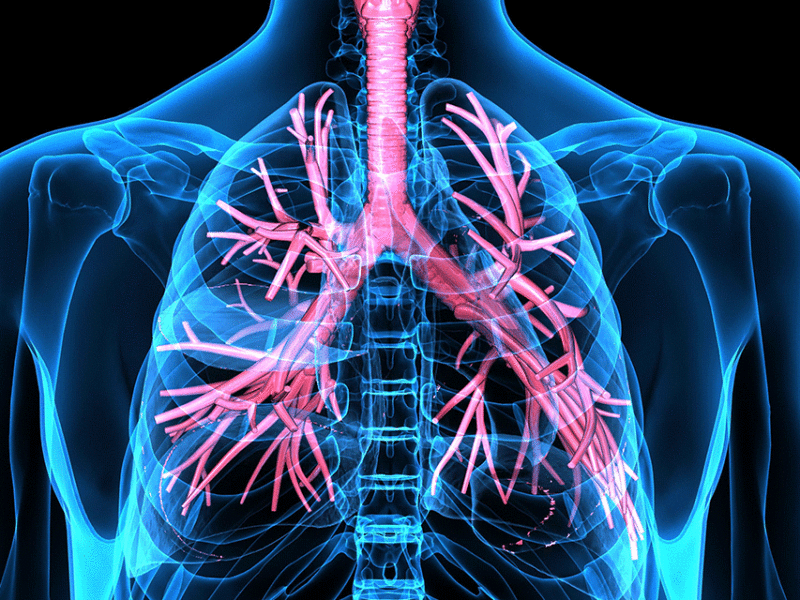Featured Researcher — Juhi Bagaitkar, PhD
Featured Researcher — Juhi Bagaitkar, PhD https://pediatricsnationwide.org/wp-content/themes/corpus/images/empty/thumbnail.jpg 150 150 Katie Brind'Amour, PhD, MS, CHES Katie Brind'Amour, PhD, MS, CHES https://pediatricsnationwide.org/wp-content/uploads/2021/03/Katie-B-portrait.gif- May 11, 2022
- Katie Brind'Amour, PhD, MS, CHES
Juhi Bagaitkar, PhD, a principal investigator in the Center for Microbial Pathogenesis at the Abigail Wexner Research Institute (AWRI) at Nationwide Children’s Hospital, studies how immune cells and barrier epithelial cells (the cells that cover all internal and external surfaces in the body) protect their human “hosts,” interact with each other and fall prey to pathogens, or bacteria and viruses that can cause disease. She also explores what impact these processes have on chronic inflammation and antiviral and antibacterial immunity.
Dr. Bagaitkar considers the mouth and its surrounding tissues an ideal place for studying these relationships due to their heavy exposure to external pathogens and their critical positioning at the entrance to the respiratory tract and the gastrointestinal (GI) tract. Her latest publications have demonstrated the ability of oral bacteria to down-regulate antiviral immune responses.
Dr. Bagaitkar and her team are also heavily engaged in research on chronic granulomatous disease, a severe immunodeficiency disorder that reduces the ability to fight infection and make reactive oxygen species (ROS), which are essential to antimicrobial immunity and inflammatory reactivity.

In addition to her current research, Dr. Bagaitkar is involved with the hospital’s Oral-GI Microbiology Research Affinity Group, which serves to improve dialogue and enhance research into these diverse but connected surfaces and their impact on systemic health.
In the few months since she joined Nationwide Children’s, Dr. Bagaitkar has already discussed new collaborations with investigators across AWRI and the hospital, and is well on her way to a robust and fruitful career with her new colleagues.
Read on to learn more about Dr. Bagaitkar and her work.
What was your path to your current role?
My undergraduate degree was in industrial microbiology, with a focus on fermentation science. If I had stayed with that, I’d be brewing wine or beer right now, which would also be awesome, but I was more intrigued by immune cells and the intrinsic and extrinsic factors that give them their “personalities,” also known as subsets.
So I pursued a doctorate in microbiology and immunology, and my interests were tweaked by how pathogens manipulate the behavior of immune cells. This was followed by postdoctoral research at Washington University in St. Louis, and that’s when I zoned in even further on immunology and focused more on genetic defects in neutrophil function predisposes to chronic inflammation and autoimmunity.
I started thinking about the oral cavity — the mouth and its many surfaces. It should be a war zone in there every day. We chew food, breathe in allergens, put unclean things in our mouth and even routinely get exposed to viruses and fungi. If that occurred anywhere else in the body, you’d have a problem! But overall, the mouth is a calm place. What’s special about the oral cavity?
New studies show the oral cavity has a big influence on human health. Oral bacteria can dampen your immunity to viral infections and even play a role in cardiovascular disease and other chronic illness.
Why did you decide to pursue your work at Nationwide Children’s?
I wanted to grow my research potential by gaining access to human samples and patients and clinicians, and I felt I needed to be at a place where the clinic and research groups are very naturally integrated. I wanted to be somewhere with dialogue and a can-do attitude across the board. Finding that type of interface — that natural cohesiveness and collaboration — was a major driver in my decision to come to Nationwide Children’s.
Fun Facts About Dr. Bagaitkar
What’s your favorite word, and why?
Coffee. Enough said!
What do you usually eat for breakfast?
Oats and berries most of the time — I like some kind of fruit in the morning.
What would be your dream job if you could do anything (that wasn’t working in research)?
I’d want to be on the cast of Saturday Night Live. I like the creative process in all its forms.
What’s your favorite food?
That depends on how hungry I am. I would say daal and rice is good comfort food.
Favorite band?
I like a bit of everything, so I would have a hard time picking a particular band or artist. But I religiously listen to Spotify’s “Discover Weekly” playlist. It introduces you to such a broad array of music. It’s kind of random sometimes, but it’s a curated sort of random!
What is your favorite part of your job?
I like the process of discovery. Mentoring is another favorite part of my work. Graduate students, postdocs and bring such enthusiasm into the lab. I also really enjoy discussing with my team the context of what we’re doing, how we’re incorporating the latest tools available and how our findings integrate with discoveries from other labs.
How does your research serve our patients and our community?
I think our research can benefit patients in a lot of different ways. We believe at some point we will be able to curtail the inflammatory response associated with some oral pathogens, which plays a key role in many diseases. We are also studying genetic mutations that increase susceptibility to infections and certain comorbidities so we can develop better therapeutic interventions down the line.
What’s next?
Last year, I would have said I wanted to be here! Now, I would like to continue along my research path and expand it to make significant advances in my field. With the resources here and the natural integration between research and the clinic, I would like to have my lab science better integrated with the true clinical picture of diseases. I want to enrich my investigations with more patient data and even begin to therapeutically target specific bacterial proteases that we have identified to reduce inflammation and other systemic complications.
About the author
Katherine (Katie) Brind’Amour is a freelance medical and health science writer based in Pennsylvania. She has written about nearly every therapeutic area for patients, doctors and the general public. Dr. Brind’Amour specializes in health literacy and patient education. She completed her BS and MS degrees in Biology at Arizona State University and her PhD in Health Services Management and Policy at The Ohio State University. She is a Certified Health Education Specialist and is interested in health promotion via health programs and the communication of medical information.
-
Katie Brind'Amour, PhD, MS, CHEShttps://pediatricsnationwide.org/author/katie-brindamour-phd-ms-ches/April 27, 2014
-
Katie Brind'Amour, PhD, MS, CHEShttps://pediatricsnationwide.org/author/katie-brindamour-phd-ms-ches/April 27, 2014
-
Katie Brind'Amour, PhD, MS, CHEShttps://pediatricsnationwide.org/author/katie-brindamour-phd-ms-ches/April 27, 2014
-
Katie Brind'Amour, PhD, MS, CHEShttps://pediatricsnationwide.org/author/katie-brindamour-phd-ms-ches/April 28, 2014
- Post Tags:
- Center for Microbial Pathogenesis
- Posted In:
- Featured Researchers







